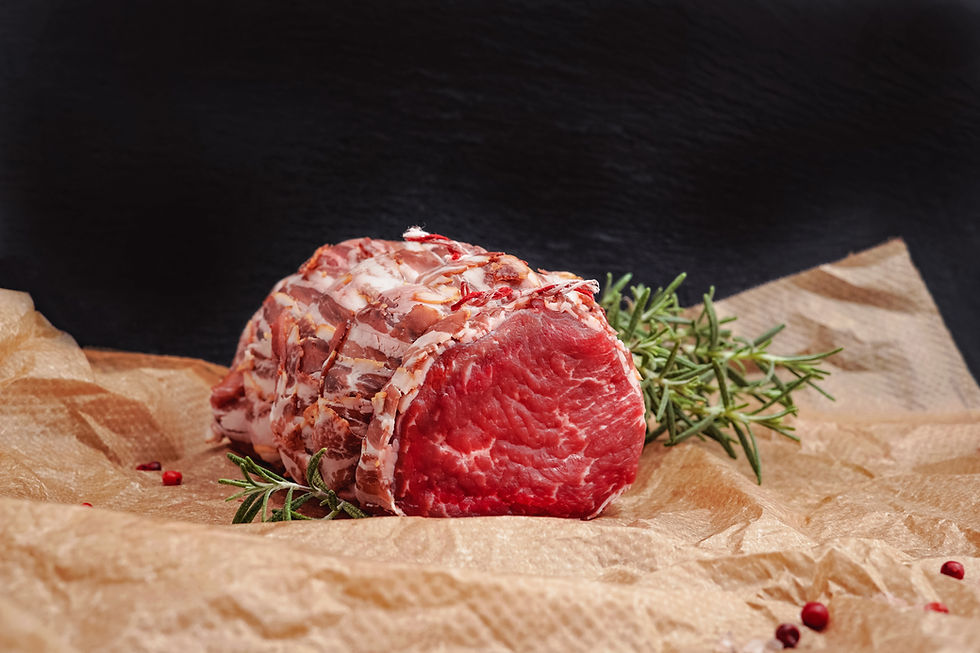Exploring the enduring reliance on animal protein, its nutritional and cultural significance, and aligning meat consumption with climate goals and animal welfare.
For over 100,000 years, humans have relied on animal protein as a primary food source, and it seems this trend will continue for the foreseeable future. Despite numerous attempts to replace real meat with plant-based alternatives, animal protein's unique nutritional profile and cultural significance remain unmatched. Eurof Uppington explores the dynamics behind this enduring reliance on meat and how we can align it with our climate goals and animal welfare.

The Rise and Fall of Plant-Based Alternatives
In 2021, a wave of celebrities including Leonardo DiCaprio, Robert Downey Jr., Katy Perry, and Serena Williams invested in plant-based foodtech startups, aiming to revolutionize the food industry and save the planet. This surge in interest saw companies like Beyond Meat and Oatly make significant market impacts, with plant-based burgers, sausages, and dairy alternatives becoming mainstream in supermarkets and fast-food chains.
However, by 2024, the plant-based meat industry faced a significant decline. Beyond Meat became a penny stock, and many startups filed for bankruptcy. Supermarket shelf space for meat substitutes shrank, and the initial hype gave way to a harsh reality: plant-based meat could not fully replicate the taste, texture, and nutritional benefits of real meat.
The Science Behind Real Meat
Meat's complex composition, which includes a unique mix of fats, proteins, and nutrients developed over billions of years, cannot be easily replicated by plant-based or lab-grown alternatives. The promises of plant-based meat often fell short in taste and texture, making it difficult to sustain consumer interest. Furthermore, these products tend to be ultra-processed, which clashes with the current trend towards clean-label, whole foods.
Economic and Cultural Barriers
The economic model for plant-based meats was also flawed. These products were primarily targeted at a niche market of flexitarians, vegetarians, and vegans. However, many vegans and vegetarians avoid foods resembling meat, and regions with strong culinary traditions, like Italy and France, showed resistance to these alternatives. Consequently, the market segment for plant-based meat remained smaller than anticipated, leading to a drop in supermarket inventory and investor interest.
Shifting Focus: Sustainable Animal Protein
As plant-based ventures falter, attention is shifting towards more sustainable methods of producing animal protein. Innovations in regenerative agriculture offer promising solutions for reducing the environmental impact of meat production. This approach focuses on enhancing soil health, increasing biodiversity, and sequestering carbon, thus aligning meat production with climate goals.
Vice President of the European Commission for competition policy highlighted that initial investments in alternative proteins were risky and that sustainable animal farming could be a more viable path. Current scientific understanding supports the idea that meat can be produced in environmentally friendly ways, such as through regenerative farming practices, which can sequester greenhouse gases and utilize marginal lands efficiently.
Related: Not All Processed Foods Are Created Equal: Avoid These Ultra-Processed Culprits for a Longer Life
The Future of Protein
While the plant-based revolution may have stumbled, the quest for sustainable protein sources continues. Investments are now pivoting towards cell-based meat and other innovative food technologies. However, the focus is also on improving traditional meat production methods to ensure they are environmentally sustainable and ethically sound.
At this juncture, it is clear that animal protein will remain a significant part of our diet. The challenge lies in integrating nature and technology to create food systems that support both human health and the planet.
Explore why real meat remains irreplaceable despite the rise and fall of plant-based alternatives. Learn how sustainable animal farming can meet climate goals and improve nutrition and animal welfare.
#RealMeat #AnimalProtein #SustainableAgriculture #RegenerativeFarming #FoodIndustry #ClimateGoals #Nutrition #AnimalWelfare #PlantBasedMeat #FoodTech #BeyondMeat #EnvironmentalSustainability #meowdininews #mdinicoin
Source: Euronews

Bình luận